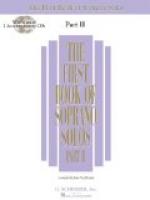“I am sure we are all glad,” said the President, “to have with us Mr. Hugh Carew from China, who has labored for years among the heathen there. We shall be pleased to hear him tell us something of his work.”
And Mr. Hugh Carew began. He was a man uninteresting to look upon, save that his face wore a certain indefinable expression of a man who has been a stranger in many places; a man habituated to loneliness and to silence. But he was evidently a man also accustomed to speak, for he addressed his audience with easy grace.
“The pleasure is mine,” he said, “in being able to present to your interest and sympathy the dearest object of the heart of God.”
Hubert started to hear the man’s work, as he thought, thus spoken of. Mr. Carew went on:
“Of course I refer not to my simple share in it, but to God’s great work of salvation in all lands.”
“Ah, that is what he means,” thought Hubert, and repeated to himself—“the dearest object of God’s heart!”
“You may question my definition of that work,” said Mr. Carew, “but a moment’s reflection will convince you that it is true. We may measure the object’s value by the price expended for it. For what other than the dearest object would God have been willing to give His most priceless treasure—the Son of His love? You will pardon my giving some attention to the fundamental facts of our common salvation before speaking specifically of the work in which I have had a part for some years in China. My apology is this: that wherever the returned missionary goes, even among God’s people, he finds himself obliged to defend his work to some who regard it as an impractical and self-devised effort at doing good, rather than the simple carrying out of the expressed will of God. We have to go back to first principles and inquire afresh: ’What is the will of God?’”
“That sounds sensible,” thought Hubert, who loved to hear vital principles discussed.
“Some very simple, well-worn texts will serve for our brief study,” said Mr. Carew. “First there is that comprehensive passage, familiarly known and quoted in all evangelical circles: ’For God so loved the world that He gave His only begotten Son, that whosoever believeth in Him should not perish, but have everlasting life.’ The words that I wish to emphasize especially are two:—’the world.’ They show you the scope of God’s love and gift. He loved ‘the world,’ not some favored race within it. And love, which cannot rest inactive, gave; gave according to its own measure—’His only begotten Son.’ We cannot be otherwise than agreed that this love and this gift were for all, and so must include my poor China. Indeed, could you divide God’s love arithmetically (it is a foolish way to put it—you cannot divide infinity!) then my friends over there might claim about one-fifth of it, I suppose, as they number about that proportion of the world’s population.”




